Issue 59 - December Solstice Edition
All issues can be found at: https://geocraic.com/
Please do let me know if you’re hitting paywalls with the links. I try to avoid this or at least notify when there is one.
Subscribe here: https://geocraic.com/pages/discussions.html
World and Solar System
Mars

Barsoom!
If you get that reference you are a pulp fan. NPR story on training an AI on the Grand Canyon to help us learn more about the Martian Grand Canyon.
- NPR: https://www.npr.org/2024/12/14/nx-s1-5155009/mars-yes-the-planet-has-its-own-grand-canyon
- UA Dissertation: https://repository.arizona.edu/handle/10150/672423?show=full
Tech
What’s new in Apple Maps
Hiking! Apple is now competing with the many hiking apps on iOS. Customize your topo maps.
- Topo map features: https://9to5mac.com/how-to-use-apple-maps-topographic-hiking-trails/
Earth Copilot
NASA has an “Earth Copilot” using Microsft (and ChatGPT) AI.
- MS Blog: https://blogs.microsoft.com/blog/2024/11/14/from-questions-to-discoveries-nasas-new-earth-copilot-brings-microsoft-ai-capabilities-to-democratize-access-to-complex-data/
- The Verge: https://www.theverge.com/2024/11/14/24296758/nasa-ai-earth-copilot-microsoft
- NASA’s VEDA platform: https://www.earthdata.nasa.gov/data/tools/veda
Niantic Labs GeoSpatial Platform Some very interesting things are happening at Niantic Labs. Which spun out of Google and is probably most famous for it’s Pokeman Go AR game. They’ve got a new product called the Scaniverse for scanning 3D artifacts and placing them in-situ in the real world.
- Niantic’s GeoSpatial Platform: https://nianticspatial.com
- Scaniverse: https://scaniverse.com/
- Niantic Labs Github: https://github.com/nianticlabs
Foursquare Open Places
Foursquare has released a new POI dataset. There was quite a bit of excitement about this initially but I’ve seen subsequent reviews that it’s a crapton of crappy data with virtually no data cleaning (e.g. lots of swear word places, dupes, etc…). So caveat usor.
- Foursquare blog: https://location.foursquare.com/resources/blog/products/foursquare-open-source-places-a-new-foundational-dataset-for-the-geospatial-community/
Mapping Podcasts
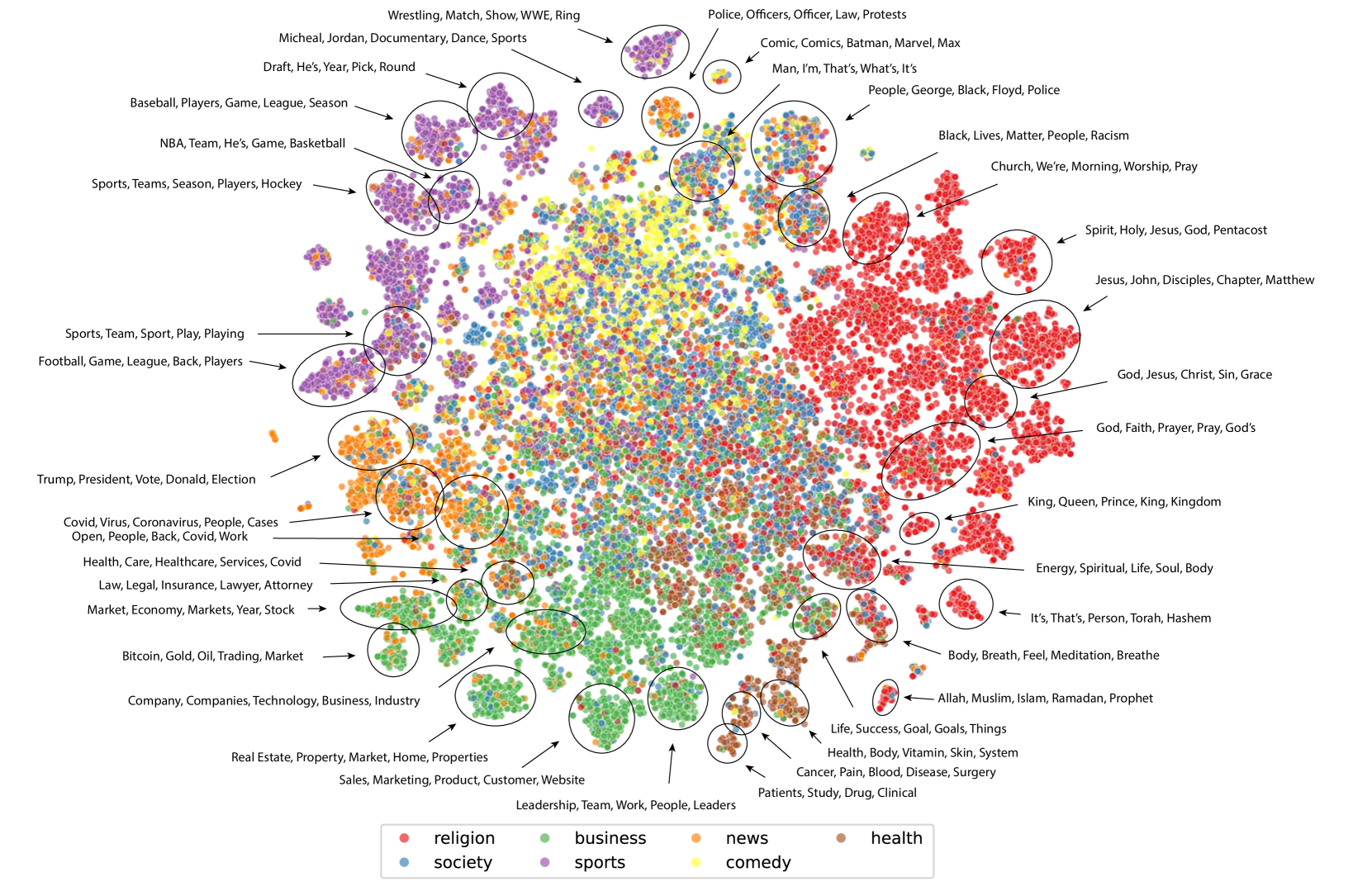
The first large scale analysis of podcasts include some interesting topical and shared-guest maps.
- Journal Article: https://arxiv.org/html/2411.07892v1
- SPoRC: the Structured Podcast Research Corpus: https://github.com/blitt2018/SPoRC_data
Global
Migration
Migratory Birds Use Magnetic Field
Migratory birds using magnetic field has long been speculated. Now it’s shown that magnetic declination and inclination are used for route finding on the migratory journeys. This article illustrates an interesting experiments to test this.
- New Scientist: https://www.newscientist.com/article/2455948-migratory-birds-can-use-earths-magnetic-field-like-a-gps/#:~:text=The%20findings%20suggest%20that%20the,Bangor%20University%20in%20the%20UK.
- Royal Society journal article: https://royalsocietypublishing.org/doi/10.1098/rspb.2024.1363
Epic Whale Migration
A documented case of a 13,000 km humpback whale migration from the Pacific to the Indian Ocean.
- BBC: https://www.bbc.com/news/articles/cp3zywxlqlxo
- Royal Society journal article: https://royalsocietypublishing.org/doi/10.1098/rsos.241361
- Identify the whale in your photos: https://happywhale.com/home
Animal Migration Visualization
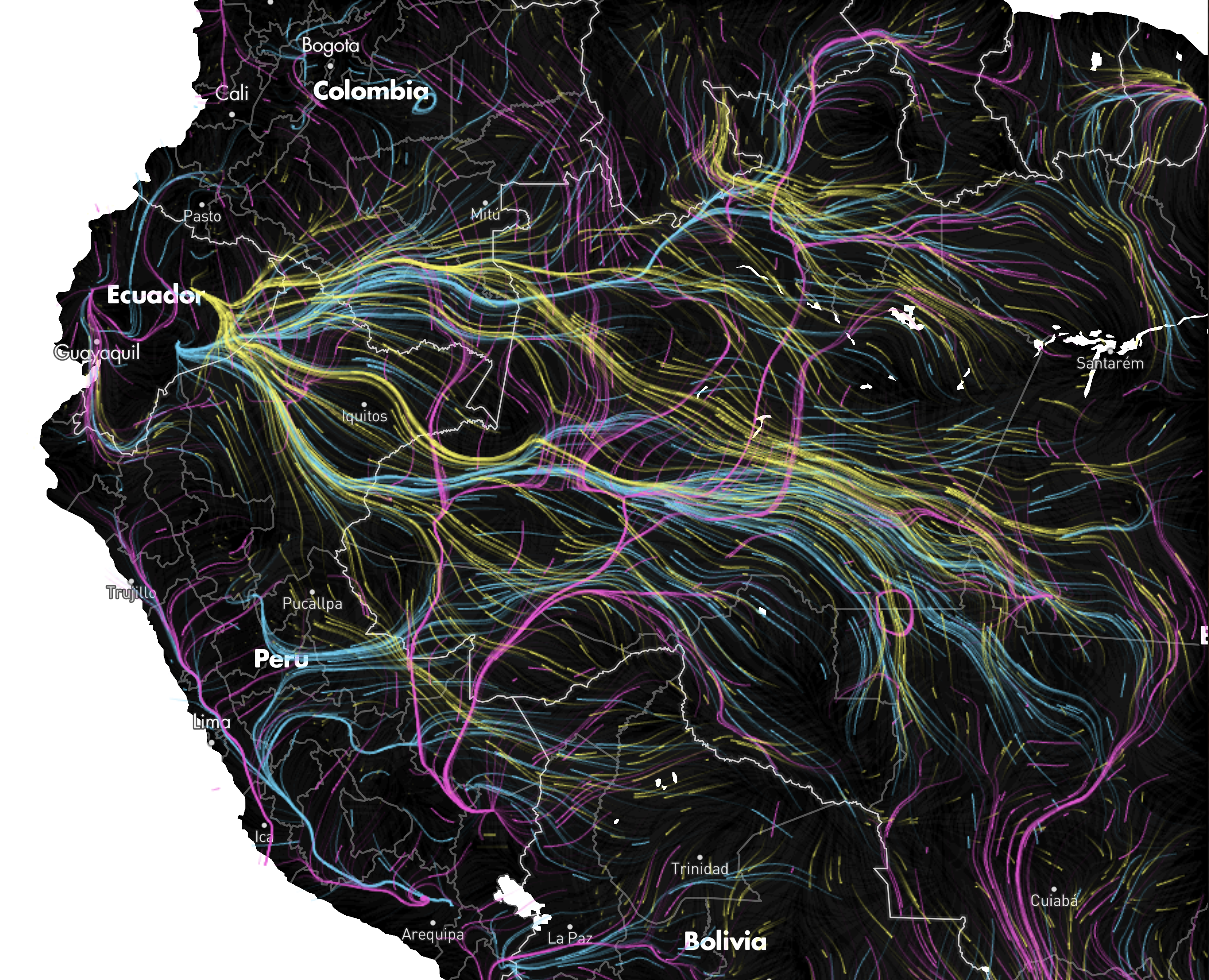
Great map that visually illustrates animal migration.
- LinkedIn Post:
- Interactive Map: https://www.maps.tnc.org/migrations-in-motion/#4.54/-5.87/-73.2
Tracking Elephants
Mapscaping is a great geo podcast. I highly recommend it. This episode is on tracking Elephant migration and it’s very interesting. I use Overcast for my podcasts but you can find it in your favorite podcast player.
- Mapscaping Tracking Elephants: https://overcast.fm/+AAU1XIYIDos
- Mapscaping home: https://mapscaping.com/
Global Invasive Species
We were in Australia, seeing plenty of evidence of non-native invasive species, and I came across a very interesting database of invasive species. The Global Invasive Species Database. Check it out.
- GISD: https://www.iucngisd.org/gisd/contacts.php
- 100 of the worst: https://www.iucngisd.org/gisd/100_worst.php
GBIF | Global Biodiversity Information Facility
Let’s flip the coin and go from invasive species to biodiversity. Here’s an awesome resource for any geographer.
GBIF—the Global Biodiversity Information Facility—is an international network and data infrastructure funded by the world’s governments and aimed at providing anyone, anywhere, open access to data about all types of life on Earth.
- Global Biodiversity Open Data portal: https://www.gbif.org/
- Apps and Maps: https://geohub-natureserve.opendata.arcgis.com/search?collection=appAndMap
Rising Continents
An interesting aspect of plate tectonics, explained.
Economic Geography
Atlas of Finance: Mapping the Global Story of Money
New Atlas on the global story of money by Dariusz Wojcik. It looks awesome. I haven’t finished it yet but if you want to take a peek, come on over. It’s got a lot of content, in addition to the great maps.
- Amazon: https://a.co/d/eg9NCC9
- Books have trailers now. This is a really great trailer too. Worth watching: https://www.amazon.com/dp/0300253052?ref=cm_sw_r_ffobk_cso_cp_apin_dp_EGR72E09VQPB2JBK7NAA&ref_=cm_sw_r_ffobk_cso_cp_apin_dp_EGR72E09VQPB2JBK7NAA&social_share=cm_sw_r_ffobk_cso_cp_apin_dp_EGR72E09VQPB2JBK7NAA&peakEvent=3&starsLeft=1&skipTwisterOG=1&bestFormat=true
Climate
Climate Bombs
Bombogenesis
Bombogenesis would be an awesome name for a band. We hear the term a lot more with climate change as some massive storm rolls through. Can’t say I ever heard it in grad school. So, that’s the GeoCraic Geo-word of 2024. Say it out loud.
PNW Bomb Cyclone
Here’s a recent specific example from the US Pacific Northwest.
- NPR - Climate Rivers aren’t new: https://www.npr.org/2024/11/22/nx-s1-5198888/atmospheric-rivers-california-west-coast-flooding-rain-storms
- USA Today: https://www.usatoday.com/story/news/nation/2024/11/21/bomb-cyclone-weather-washington-oregon-updates/76473165007/ -AP: https://apnews.com/article/california-oregon-washington-storm-power-outages-aadbd4863dd989189d31c1c2187b5025
Missing La Niña?
Well, based on recent weather in the PNW I don’t think La Niña is missing any longer. But it was delayed this year.
- New Scientist: https://www.newscientist.com/article/2452742-the-mystery-of-the-missing-la-nina-continues-and-we-dont-know-why/
Climate Emissions
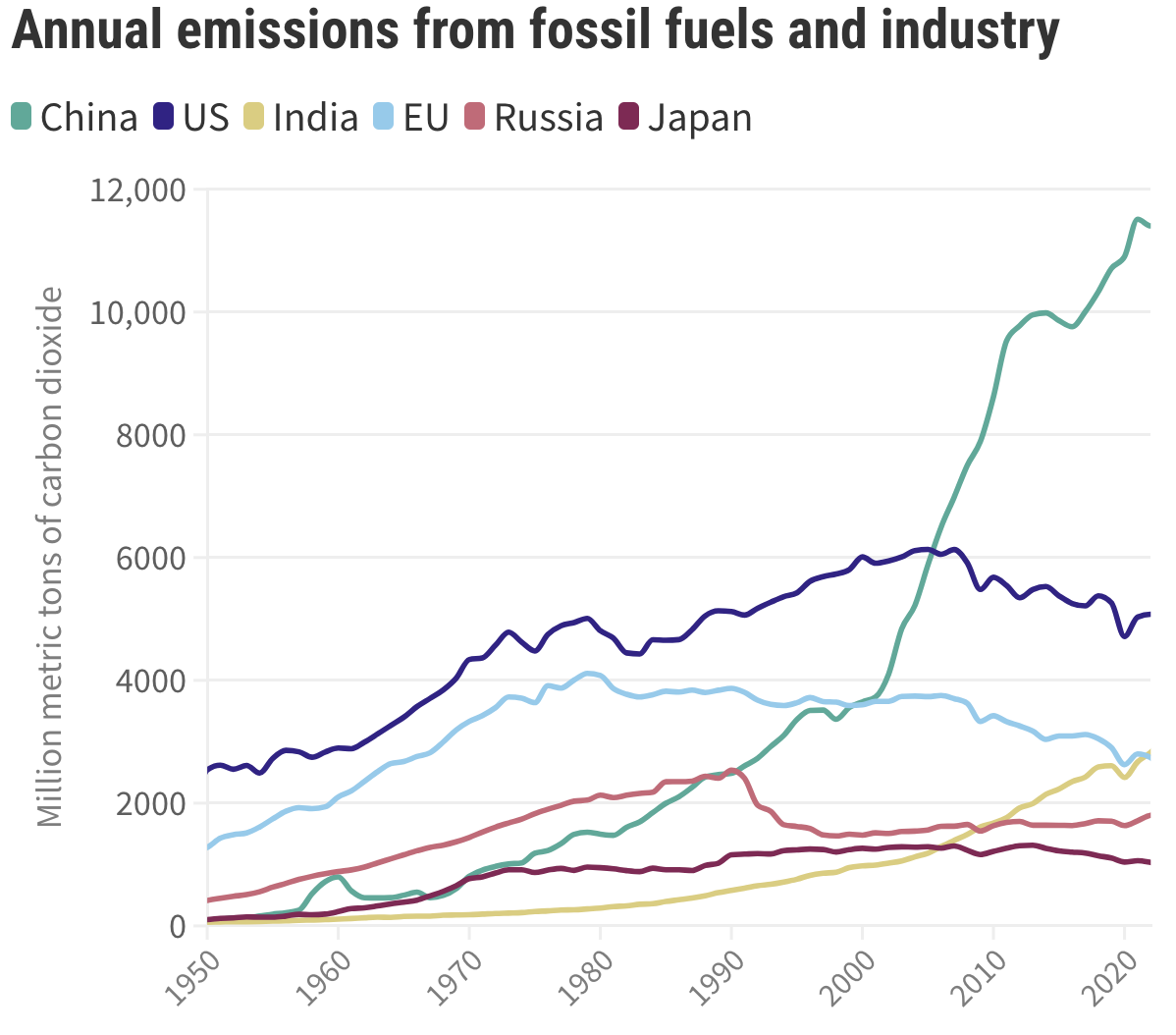
I don’t really care who’s to blame for climate emissions. Maybe because I’m in the US, one of the countries most responsible. I just want some fucking political will and leadership to do something about it. I’m sure “blame” has something to do with deciding who pays for it, but this article makes clear there’s a lot more nuance. How about if we just tie a sufficient enough tax to GDP for remuneration and massive fines if you don’t keep your promises. Keep it simple.
- MIT Technology Review: https://www.technologyreview.com/2024/11/20/1107015/global-climate-emissions/
Climate and Nature Wins
We have had some climate wins in 2024. It’s good to acknowledge these.
How Can Something This Big Be Invisible
Art worth a listen. This is a great poem but the “ownership” mentioned is a Western cultural perspective. Other cultures did not have the same perspective and that perspective could be the downfall of the planet. We need to help shift that perspective.
- In-Q on Youtube: https://www.youtube.com/watch?v=s3toNen_H6Y
Uzbekistan
New Ancient Cities
Lidar continues to have an amazing impact on new archeological site discovery. New Silk Road cities have been mapped in Uzbekistan.
- SciTechDaily: https://scitechdaily.com/researchers-discover-enormous-ancient-cities-hidden-in-uzbekistans-mountains/
- Nature article: https://www.nature.com/articles/s41586-024-08086-5
Africa
Flash Floods in the Sahara
30-50 year flood events in the Northern Sahara.
Central America
More on Mayan Valeriana
The jungle actually helped preserve acient Mayan cities.
United States
Mapping Thanksgiving
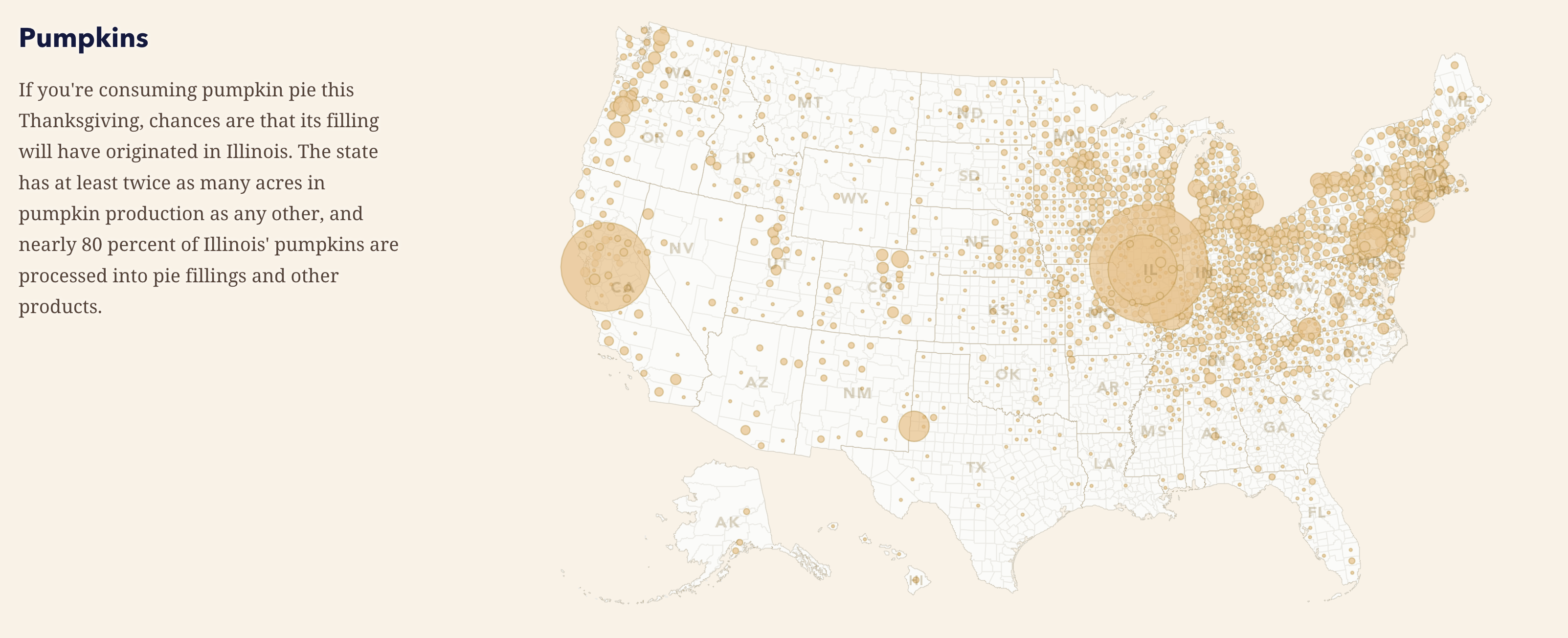
Well, this shows how long this issue has been percolating. Since just after Thanksgiving (late November). Now it’s nearly New Year’s and I’m just getting it out. Sigh. Well done story map on where your holiday staples come from.
NYC Oyster re-wilding
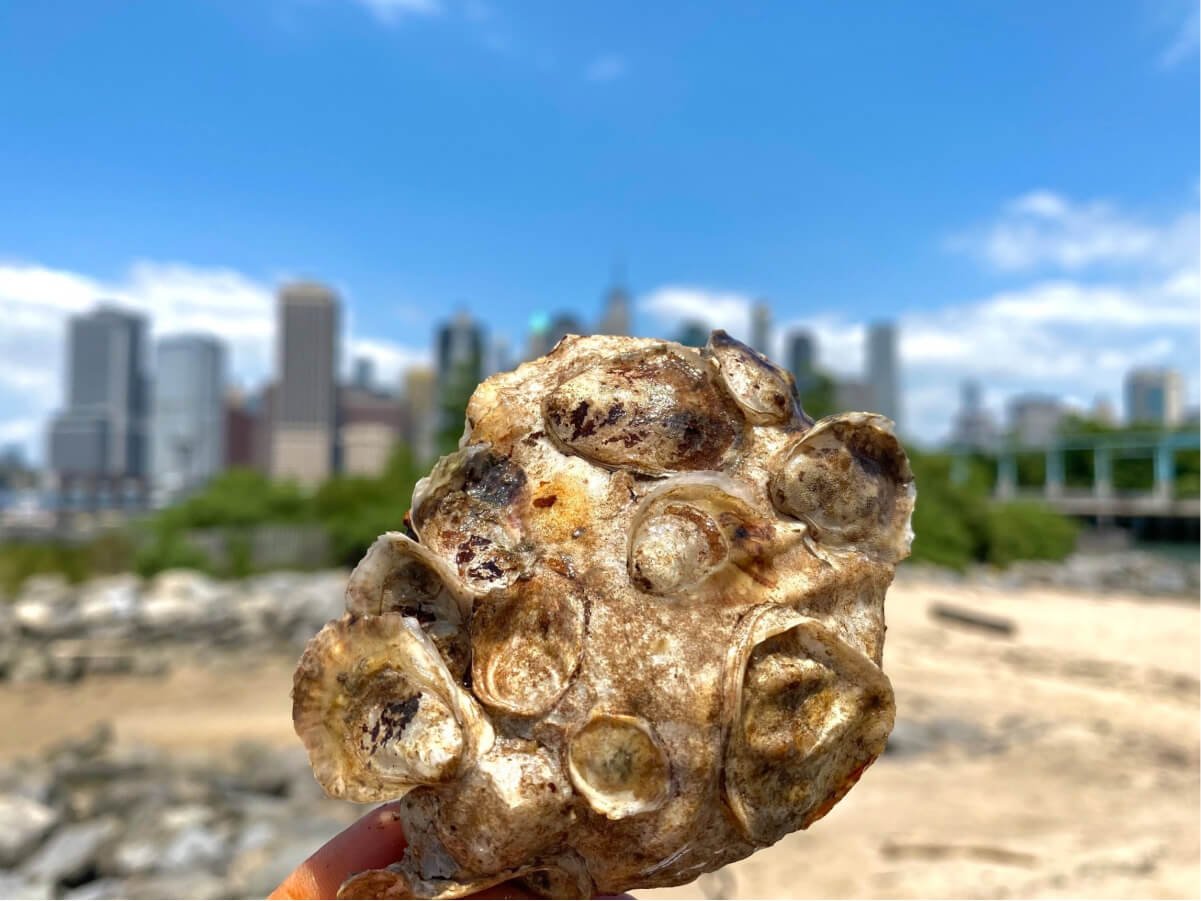
Rewilding Hudson Bay with a billion oysters! Great project. The BBC article is a great illustration of marine rewilding and oysters are an essential keystone species with huge benefits for the environment and for humans. Definitely peruse their article. If you really want to dig into oysters I highly recommend the “Geography of Oysters” by Rowan Jacobsen. Primarily about North American oysters, with a few shuckings on Global oysters. Another of my favorite authors, Mark Kurlansky, has a book on the history of NYC oysters that’s worth checking out. I’ll post a future review.
- BBC: https://www.bbc.com/future/article/20241118-how-new-yorkers-are-reclaiming-their-harbours-heritage
- Billion Oyster Project: https://www.billionoysterproject.org/
- Geography of Oysters by Rowan Jacobsen: https://amzn.to/3ZRse3M
- The Big Oyster by Mark Kurlansky: https://amzn.to/3BJfa8O
Demographic migration
The political impact of demographic migration to red states.
- NYT (no paywall): https://www.nytimes.com/2024/12/12/opinion/democrats-republicans-electoral-college.html
Drought
US Drought Conditions
- WaPo: https://www.washingtonpost.com/weather/2024/11/04/drought-us-record-conditions-flood-forecast/
New Precipitation Regions
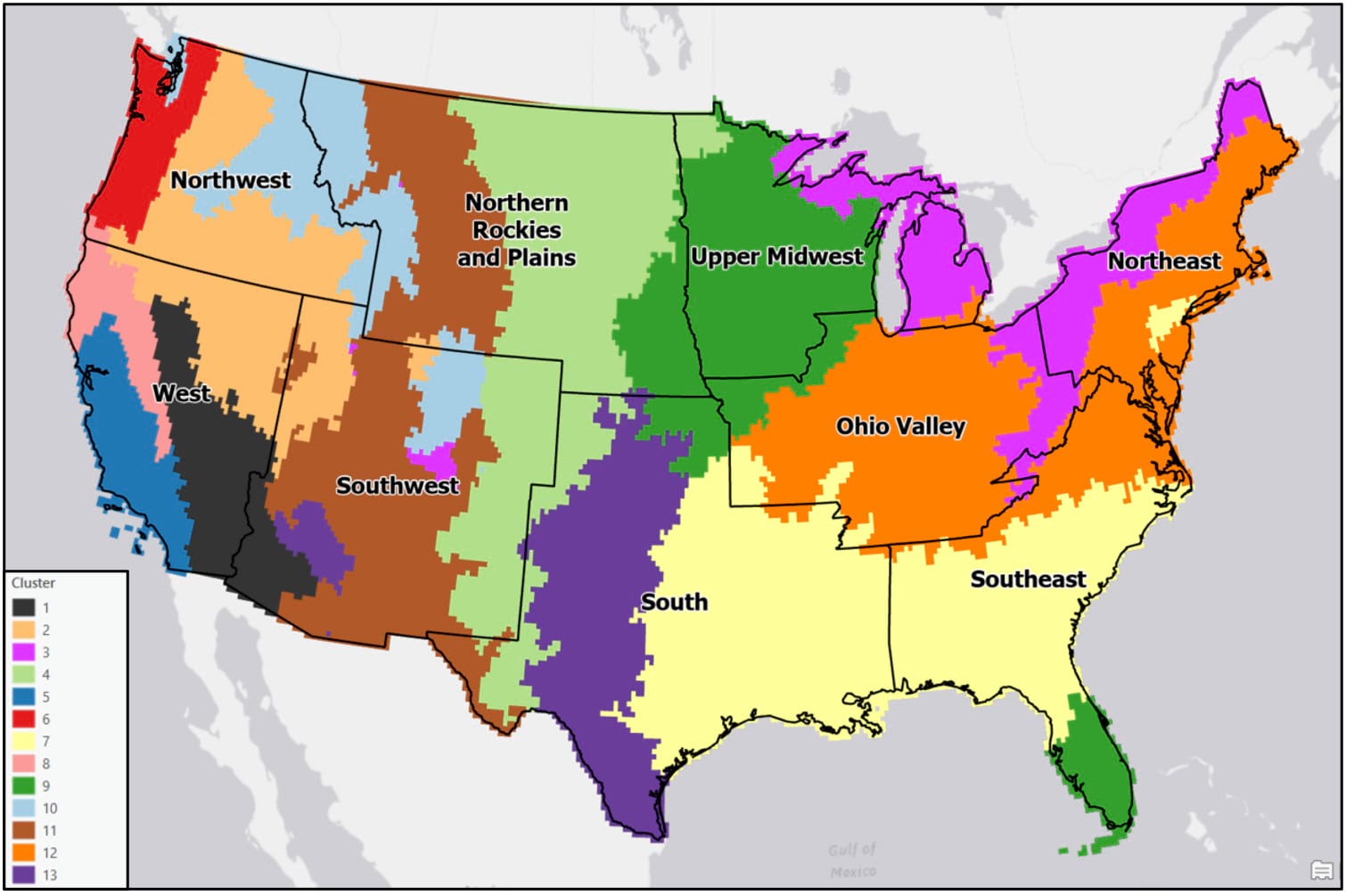
There’s a new map of US precipitation regions.
- ESRI blog: https://www.esri.com/arcgis-blog/products/arcgis-pro/analytics/end-to-end-spatial-data-science-1-clustering-us-precipitation-regions/
- AAG Journal article: https://www.tandfonline.com/doi/full/10.1080/24694452.2020.1828803
South America
New Nazca lines AI assisted analysis reveals double the number of known Nazca lines. It took nearly a century to find 430 geoglyphs and now 303 more have been found in a 6 month field survey.
- PNAS: https://www.pnas.org/doi/10.1073/pnas.2407652121
- NYT (pay-walled): https://www.nytimes.com/2024/11/23/science/nazca-lines-peru-ai.html
Qhapaq Ñan - The Incan road system
Great story of the Qhapaq Ñan’s last bridge. Woven from grass. Re-woven annually. It’s not widely known or appreciated that the Inca were master weavers and weaving extended to their infrastructure to include bridges for humans and llamas. Some of that knowledge is carried forward to today and still in use.
- The last woven bridge: https://www.bbc.com/travel/article/20241206-the-last-inca-bridge-master
- More on the Qhapaq Ñan: https://www.bbc.com/travel/article/20170912-a-30000km-road-network-from-the-andes-to-the-amazon
- UNESCO Qhapaq Ñan sites: https://whc.unesco.org/en/list/1459/maps/
- BBC: https://www.bbc.com/travel/article/20241206-the-last-inca-bridge-master
Biden in the Amazon
Biden went to the Amazon. That is quite the milestone as the first US president to visit the ecosystem. Now let’s see if we can keep it preserved through the next US president.
Southeast Asia
Grab maps
Google Maps has some competition in Southeast Asia.
- Rest of World: https://restofworld.org/2024/grab-google-maps-southeast-asia/
- Rest of World looks like a good world news source focused on tech: https://restofworld.org/about/
Canada
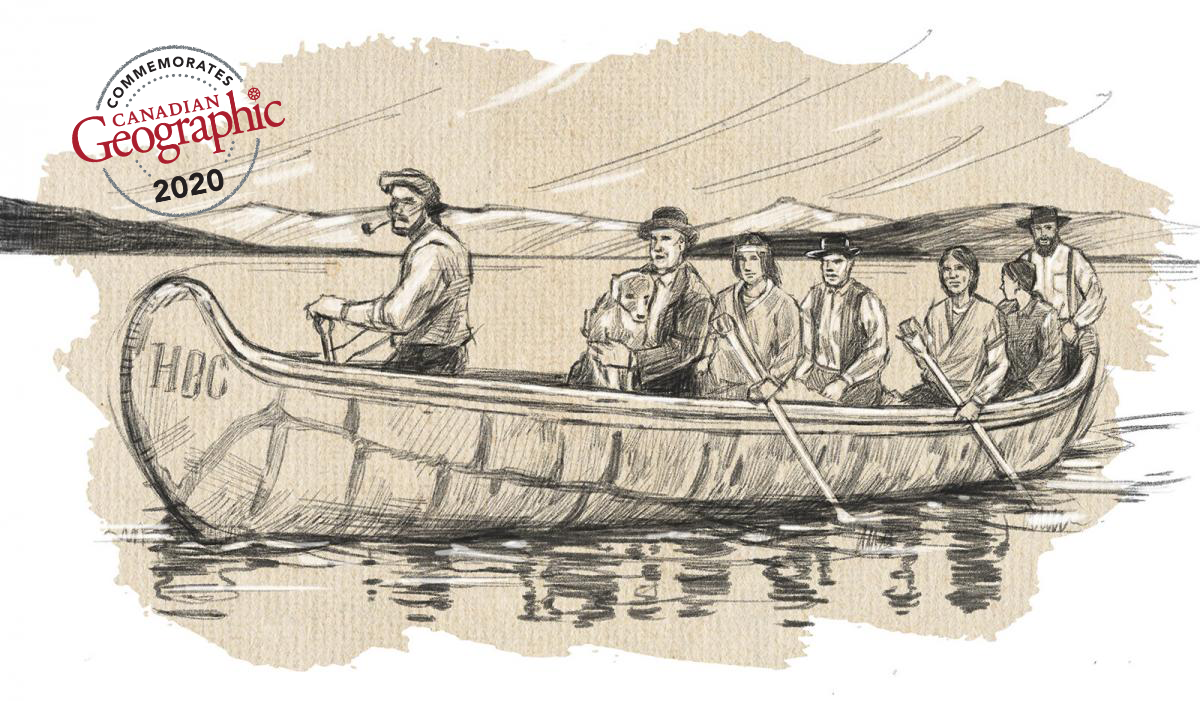
Hudson’s Bay Company
Looking at some of my brother’s work on family genaology we found an ancestor who worked for the Hudson Bay Company. Which started an interesting side quest to learn a bit more.
- Canadian Geographic: https://canadiangeographic.ca/articles/the-untold-story-of-the-hudsons-bay-company/
- Wikipedia Voyageurs: https://en.wikipedia.org/wiki/Voyageurs
Solomon Islands
World’s largest known coral
We were in Australia this fall (2024) and of course had to do some diving on the Great Barrier Reef. Absolutely stunning and awesome. I’ll have more on the GBR in a future edition. Just after we left I saw this new discovery of the largest known coral. Super cool. The thing that I’ve learned relatively recently is that our existing distribution of coral world-wide is quite young. Corals are 100’s of millions of years old. But the greatest coral structure currently, the GBR, is only about 15-20 thousand years old. Since the end of the ice age and subsequent sea level rise. And this giant coral is only 300 years old. A baby compared to Sequoia. So, ironically it give me hope in a climate changing world. Humans, or at least our civilizations may crumble, the GBR is and will bleach further, but coral aren’t going anywhere.